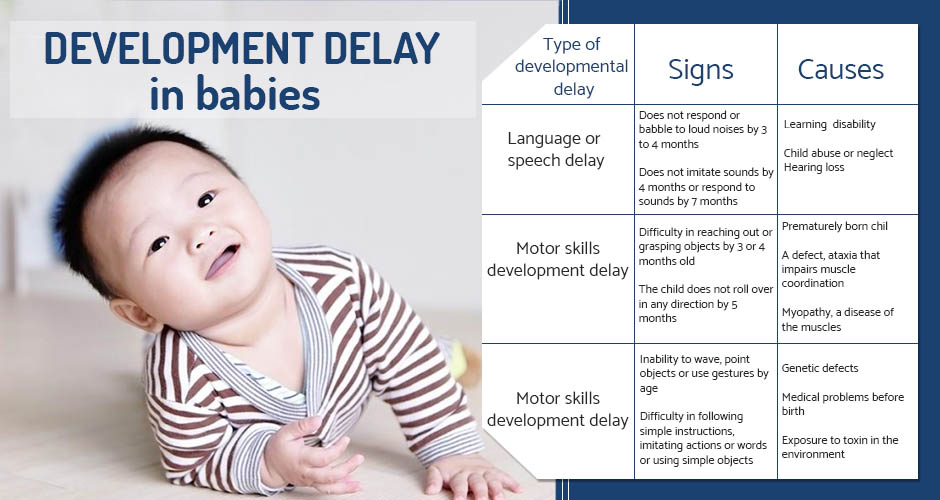 Source: bing.com
Source: bing.comTable of Contents
Introduction
As new parents, it’s natural to worry about every aspect of our baby’s development. From the moment they’re born, we want to make sure they’re healthy, happy, and meeting all of their milestones. But what happens when our baby’s development seems delayed? It can be a scary and confusing time, but understanding what’s happening and what steps you can take can help ease your worries.
What is Baby Development Delay?
Baby development delay is when a baby doesn’t reach their developmental milestones at the expected time. These milestones are a set of skills or behaviors that most babies can do at a certain age range. For example, rolling over, sitting up, crawling, and walking are all developmental milestones. When a baby doesn’t reach these milestones within the expected time frame, it’s considered a delay.
Causes of Baby Development Delay
There are many different factors that can contribute to baby development delay. Some of the most common causes include:
- Premature birth or low birth weight
- Genetic or chromosomal abnormalities
- Problems during pregnancy or birth
- Poor nutrition or malnourishment
- Exposure to toxins or drugs
- Illness or infection
- Developmental disorders
It’s important to note that some babies may simply develop at a different pace than others, and that doesn’t necessarily mean there’s anything wrong. However, if you’re concerned about your baby’s development, talk to your pediatrician.
Signs of Baby Development Delay
It’s important to keep in mind that all babies develop at their own pace, and there’s a wide range of what’s considered “normal.” However, if you notice any of the following signs, it may be a good idea to talk to your pediatrician:
- Your baby isn’t reaching developmental milestones within the expected time frame
- Your baby seems overly floppy or stiff
- Your baby doesn’t seem interested in interacting with you
- Your baby isn’t making eye contact
- Your baby isn’t responding to sounds or voices
- Your baby isn’t babbling or making any other vocalizations
- Your baby isn’t crawling or attempting to move around
- Your baby seems to have weak muscle tone
What to Do if You Suspect Development Delay
If you’re concerned that your baby may be experiencing developmental delay, the first step is to talk to your pediatrician. They may recommend some tests or evaluations to get a better idea of what’s going on. Depending on the cause and severity of the delay, there are many different interventions that may be recommended:
- Physical therapy to help with muscle strength and coordination
- Occupational therapy to help with fine motor skills and hand-eye coordination
- Speech therapy to help with communication skills
- Special education services to help with cognitive and educational skills
In some cases, additional medical interventions or treatments may be necessary.
Conclusion
If you’re worried about your baby’s development, it’s important to remember that you’re not alone. Many parents have gone through similar experiences, and there are many resources and professionals available to help. By being proactive and seeking help early on, you can help your baby reach their full potential.
Frequently Asked Questions About Baby Development Delay
Q: How common is baby development delay?
A: Developmental delay affects around 1 in 6 children, according to the Centers for Disease Control and Prevention (CDC).
Q: How can I help my baby reach their developmental milestones?
A: There are many things you can do at home to support your baby’s development, such as tummy time, talking and singing to your baby, and providing a safe and stimulating environment.
Q: What should I do if I suspect my baby may have a developmental disorder?
A: Talk to your pediatrician as soon as possible. They can help evaluate your baby’s development and recommend any necessary interventions or treatments.
Q: What’s the best way to deal with the emotional stress of baby development delay?
A: It can be a challenging and emotional time, but it’s important to remember that you’re not alone. Reach out to friends, family, or a support group for help and advice. You may also consider talking to a mental health professional to help deal with any feelings of anxiety or depression.
Q: Will my baby eventually catch up if they experience developmental delay?
A: In many cases, yes. With early intervention and support, babies with developmental delay can often catch up to their peers and go on to lead happy, healthy lives. However, it’s important to seek help early on to give your baby the best possible chance for success.
